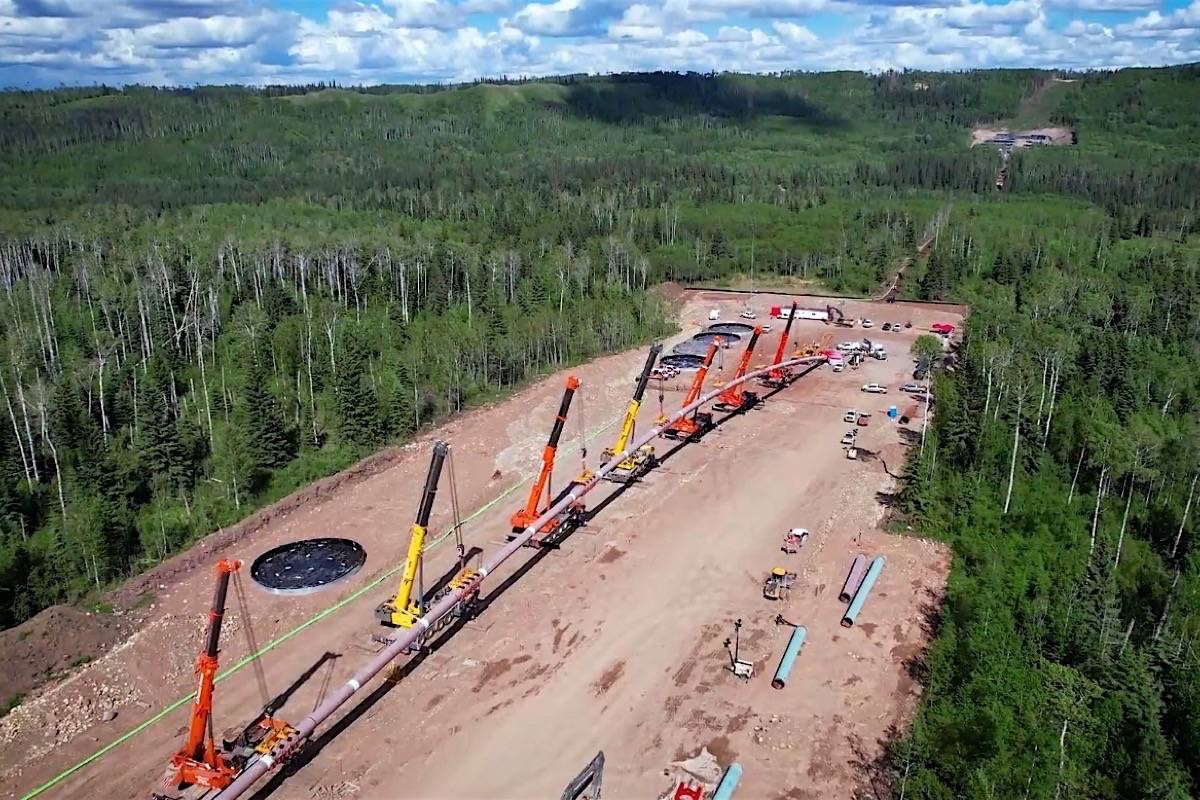In 2019, TC Energy began construction of the 670 km Coastal GasLink pipeline, which is now more than 80% complete and running at least $5 billion over budget. The pipeline cuts through multiple Indigenous nations' territory, including 190 kilometres of Wet’suwet’en land in northern British Columbia. North Star spoke to Sleydo’ Molly Wickham—spokesperson for Gidimt’en Checkpoint, an Indigenous land defence camp—about the economic and social impacts her community is already seeing.
Mainstream media often highlights the employment opportunities created for some First Nation communities as a result of the pipeline project, without much emphasis on the damage caused and the temporary character of the jobs. In her interview with North Star, Sleydo’ remarked, "This isn't sustainable for our communities. We want our people to have jobs. We're not anti-job, we're not anti-development. We want sustainable ways for our people to make a living that are connected to the land and that are in line with our laws."
In 2018, the Province of BC negotiated Impact Benefit Agreements (IBAs) with elected band councils from 20 First Nations, councils which are only responsible for their designated reserves and do not govern land off reserves. In Wet’suwet’en territory, five band councils struck agreements, though they govern just 0.14% of Wet’suwet’en land, with the pipeline not crossing any of their reserves. No consent was reached with the Hereditary Chiefs who have jurisdiction over the Wet’suwet’en land (yintah) affected by the pipeline.
According to CGL and the mainstream media, 10% ownership stakes were promised to 16 of the 20 First Nations who signed IBAs once the pipeline is fully operational. This assertion, however, is misleading. No profit-sharing agreements have been finalised – instead, two entities, the CGL First Nations Limited Partnership and the FN CGL Pipeline Limited Partnership were created that enable the "possibility" of 10% ownership stakes once the pipeline is flowing. None of the First Nations in these two Partnerships are directly impacted by the pipeline.
In 2019, 2020, and 2022 the United Nations repeatedly called for the province and TC Energy to cease construction due to violations of human rights for Wet’suwet’en people. In response to peaceful protests to protect their unceded land, Wet’suwet’en land defenders faced violent raids and arrests by militarised Royal Canadian Mounted Police (RCMP) on the Coyote Camp, between November 17-19, 2021, on the basis of the BC Supreme Court injunction.


